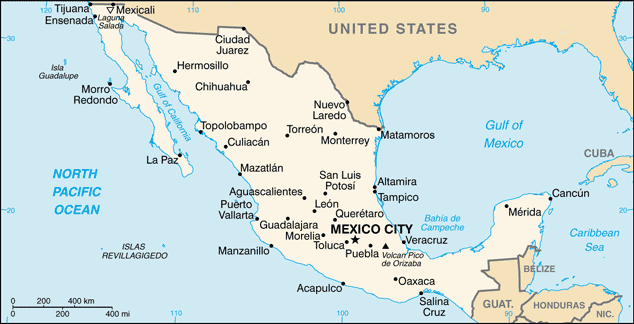The Mysterious Fruit Called Goruba: What is it and Why Should You Care?
If you’ve ever stumbled upon the word “Goruba” and scratched your head wondering what it is, you’re not alone. The term, often mentioned in discussions surrounding African fruits and plants, doesn’t have the global fame of more common fruits like mangoes or apples. But, as with all things that fly under the radar, Goruba is full of surprises — both in terms of its intriguing name and its undeniable benefits. So, what exactly is this fruit, and why should you care? Let’s dive in and explore this deliciously mysterious gem.
What is Goruba?
First things first: Goruba is a fruit commonly found in certain parts of Africa, especially in the Sahel region. Its name might sound like something you’d hear in a James Bond movie or perhaps an ancient fable, but it’s very real, and it packs quite a punch. So, when you hear “Goruba,” you’re not hearing about an exotic creature, but rather an African fruit that holds many secrets.
In English, Goruba is often translated as the doum palm fruit or gingerbread palm fruit — though its scientific name is Hyphaene thebaica. Now, this isn’t a fruit you’re going to find in your average supermarket aisle, at least not outside its native regions. But just because you can’t grab it off a shelf doesn’t mean it isn’t worth knowing about. Trust me, it is.
Where Can You Find Goruba?
If you’ve never been to Northern Africa, the first thing to know is that Goruba grows on the doum palm, a tree that thrives in the arid climates of the Sahel and Sahara. The tree has a rugged, ancient look to it — sturdy and proud, standing tall in environments that challenge even the hardiest of plants. The fruit itself is a bit like nature’s candy: it’s small, round, and encased in a tough, hard shell. Inside, you’ll find a fibrous pulp, and the taste… well, that’s where it gets interesting.
What Does Goruba Taste Like?
If you’ve ever wondered what it would taste like to bite into a fruit that’s somehow both sweet and savory, Goruba might just be your answer. Some describe it as having a sweet, date-like flavor, while others insist it’s got a touch of gingerbread spice to it. In fact, it’s often likened to the flavor of gingerbread — hence the name “gingerbread palm fruit.” This makes it a bit of a treat for those who love rich, earthy flavors with a hint of natural sweetness. But don’t be fooled; it’s not just the flavor that sets this fruit apart — it’s what this humble fruit can do for your health.
The Health Benefits of Goruba: Why You Should Care
Now, let’s get down to the nitty-gritty: Why does Goruba matter? It turns out that this fruit, while not a household name, comes with a long list of health benefits that might just make you rethink your fruit bowl.
- Rich in Nutrients: Goruba is packed with essential nutrients. It contains a variety of vitamins and minerals that are crucial for maintaining good health. Whether you’re looking for vitamin C, potassium, or fiber, Goruba has you covered. It’s like a secret weapon in your fruit arsenal.
- Improves Digestion: One of the standout benefits of Goruba is its positive effect on digestion. The fibrous pulp found inside the fruit helps in promoting regular bowel movements and supporting overall digestive health. So, if you’re feeling a little sluggish in the gut department, Goruba could be a natural way to get things moving.
- Boosts Immunity: Thanks to its vitamin C content, Goruba is a natural immunity booster. A stronger immune system means fewer colds, fewer sick days, and overall better health. So, if you’re the type who catches every bug that comes your way, this fruit might just help you fight back.
- Hydration: The fruit has a high water content, making it a good choice for staying hydrated in hot climates. In regions like the Sahel, where heat and dehydration are constant concerns, the doum palm fruit can be a vital source of moisture for the body.
- Antioxidant Properties: Like many fruits, Goruba is rich in antioxidants, which help to neutralize harmful free radicals in the body. These antioxidants are vital for maintaining youthful skin and fighting off chronic diseases. So, if you’re looking for that glow-up, Goruba might have your back.
- Cultural Significance: While the health benefits are important, let’s not overlook the cultural significance of Goruba. This fruit is deeply tied to African traditions and rituals, particularly in the areas where it grows. It’s more than just food; it’s part of the social fabric of many African communities. So, eating it isn’t just a health move — it’s a way to connect with a rich cultural heritage.
How Do You Eat Goruba?
Now that we’ve established that Goruba is a pretty impressive fruit, you might be wondering how to eat it. After all, this isn’t like biting into a simple apple. The tough outer shell needs to be cracked open, and once you do, you’ll find that the pulp is fibrous, much like a date or a dried fig.
Traditionally, Goruba is eaten raw, but it can also be used in cooking, making it a versatile fruit for different culinary experiences. It can be made into jams, eaten with other fruits, or even used as an ingredient in savory dishes. Think of it like a fruit that can do double duty in both your sweet and savory meals. And, of course, in the hot, dry regions where it grows, it’s often consumed to help with hydration during the scorching temperatures.
Goruba: The Future of African Superfoods?
The world of superfoods is constantly evolving, and while fruits like acai and goji berries dominate the health food scene, Goruba is the African superfood quietly waiting for its moment in the spotlight. Its rich nutritional profile, combined with its deep cultural roots, makes it a worthy contender in the global health food market. And let’s be honest, who wouldn’t want to tell their friends that they’ve discovered a new fruit that’s both delicious and good for them?
As more people become interested in African agriculture and the benefits of indigenous fruits, Goruba might just become a staple on your local supermarket shelf. For now, it remains an important part of African cuisine, but its future could see it embraced worldwide.
In Conclusion: Embrace the Mystery of Goruba
So, the next time someone brings up Goruba, don’t just nod and smile, pretending you know what they’re talking about. Embrace the mystery of this fascinating fruit, and perhaps even seek it out if you can. Whether you encounter it in a market in Northern Africa or stumble upon it in a well-curated health food store, Goruba is a fruit that’s worth paying attention to. Its unique flavor, impressive health benefits, and cultural significance make it more than just another fruit — it’s a reminder that sometimes, the best things in life are the ones we’ve never heard of.


